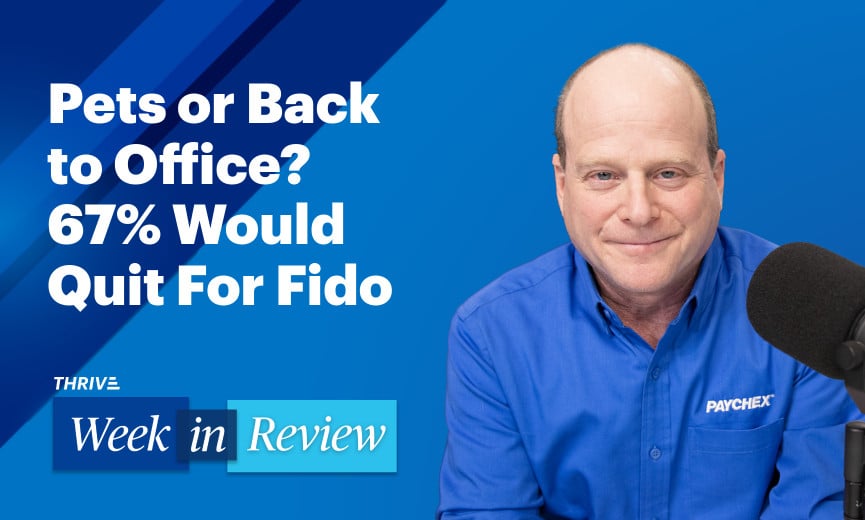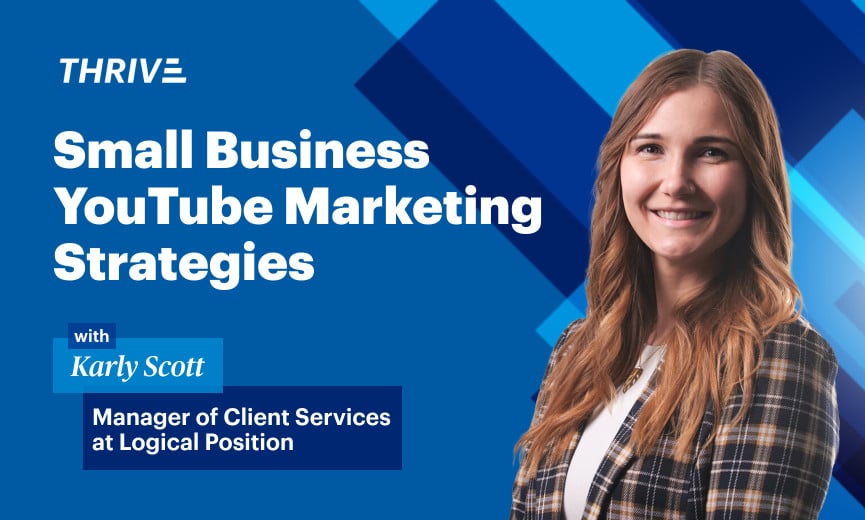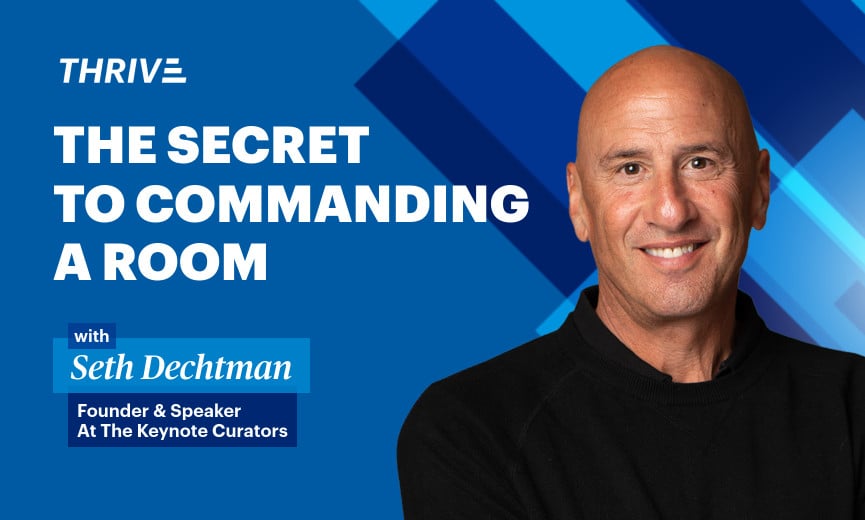- Thrive
-
Temporada
4Episodio175
Más beneficios en medio del aumento de los costos, vivir al día y las demandas por accesibilidad web
Podcast •
Vea
Resumen
A pesar de que se prevé que los beneficios de salud aumenten más del 5 %, más de la mitad de los empleadores encuestados dijeron que no solo cubrirían el costo, sino que también considerarían agregar beneficios, como medicamentos para bajar de peso. Esto atenúa la noticia de que más de un tercio de los estadounidenses viven al día. Gene Marks aborda estos temas y ofrece algunos consejos a los propietarios de negocios para evitar posibles demandas: audite la accesibilidad de su sitio web según la Ley de Estadounidenses con Discapacidades. Mire o escuche el pódcast.
Ver transcripción
Hey, everybody, it's Gene Marks, and welcome back to another episode of the Paychex THRIVE podcast. This is our Week in Review podcast, where we take a few items of news that happened during the past week and, talk about it a little back because they impact your small business and my small business, as well. So, let's get to the news, shall we?
The first bit of news gets reported from hrdive.com. It was reporting on a new study that just came out from the employee health care consulting firm, Mercer. Mercer has found that employers plan on doubling down on their healthcare costs, so let me report this news to you. They plan to maintain their current health benefits in 2025. This is, by the way, a survey of 700 organizations. This is despite the per employee cost of benefits rising about 5.2% in 2023 – in 2024 – after nearly a decade of 3% growth.
Additionally, employers plan to increase their support or consider certain specialties coverage for like things like reproductive health needs, which is growing quite a lot, and employers are increasingly interested in covering weight loss medications, as well. Recent surveys have found that a lot of employees are really favoring getting coverage for weight loss medications like Ozempic, and employers are responding.
Employers are split on how to cover these rising costs. While 45% said it's very likely they will shift rising costs onto workers, 47% – almost half – said it was not very or not likely at all. Most plan to offer or consider alternative strategies like high-performance networks or advanced clinical case management.
So, just as a recap, even though health insurance costs are going up more than 5%, which is significantly more than prior years, most healthcare firms are not walking away clearly from a health insurance. They're sticking to it and doubling down on it. They're looking at other types of alternative benefits to offer as well, like reproductive services or weight loss services. And almost half of these employers say that they're going to shoulder these additional costs on their own rather than passing them down on employees. So, that was the results of a Mercer study that was reported on HR Dive.
The second bit of news comes from another study. This is reported on FOXBusiness.com. One in three working Americans are living paycheck to paycheck, according to this survey. So, let me read this out. This is new data that was released just this past week by financial services company Bankrate indicates that 34% of Americans feel they are living paycheck to paycheck lifestyle, with the number estimated to be even higher when factoring in all U.S. adults, considering that 6 in 10 Americans are in the labor force. The latter is closer to a number given by another study from Lending Club Bank in 2023, which focused on just American consumers, finding that 61% live paycheck to paycheck. So, anywhere between one-third and two-thirds of workers say they are living paycheck to paycheck.
Here's another thing that the bank rate study found that which should be of interest to all of us as business owners: Only 19% of those surveyed feel they are paid fairly for their work, 24% feel they are unfairly compensated, another 19% feel they are underpaid. So, there's putting these numbers against those of your colleagues. Again, 19% say that they are, but they are paid fairly for their work, 24% feel they are unfairly compensated, and 19% say that they are underpaid.
So, only 1 in 5 workers actually feel that they are getting a fair compensation for the work that they are putting in.
Well, what does this mean to us as employers? Well, listen, I mean, if that many employees out there are not only unhappy with what's being paid, but also they're living paycheck to paycheck, that's a problem. Your employees that have financial, you know, concerns or financial challenges that ultimately results in their productivity at work is it takes them away. It takes their mind away from the job that they were doing. And it takes away, from hopefully the work that they're doing from you.
We've got to be making sure that we are paying fair. We should be looking at those salary and compensation websites like Glassdoor and other ones, to see that our workers are, you know, annually paid within the range that they should be getting. Also, we should consider some same day pay services, as well. Paychex partners with a same day pay provider that can offer payment to employees on the day that they work by issuing those payments onto a debit card. So, that's something you might want to ask your Paychex consultant about.
But in the end, you really want to take into consideration that a lot of workers, a lot of American workers are hurting. Anywhere between one- and two-thirds of them are living paycheck to paycheck. That's not only bad for them, but again, that is bad for our businesses, as well. We need to address that.
Finally, I want to report to you on another really interesting article in the Wall Street Journal this past week. It talked about law firm that's hitting businesses with thousands of disability suits. The law firm is called Mizrahi Kroub. They are based in New York. They have more than 1,100 web-accessibility suits. This is a firm made up of nine lawyers. They are the largest filer of these cases, making up more than one-quarter of digital cases that are suing businesses about accessibility.
So, what do we mean by accessibility? The Americans with Disability Act has specific language in it about making sure that all people that visit your business, like, they're providing ramps for the handicapped, for example, or other things for disabled people. But the same thing goes to your website, as well. Is your website, you know, approachable and navigable by somebody that might be blind or deaf or have other disabilities. Is it in accordance with the ADA law, the Americans with Disabilities Act?
A partner at that firm, his name is Joseph Mizrahi, he said a legally blind uncle gave him an appreciation of the need for this accessibility. He said that there are millions of websites, millions that are not accessible. So, they're just scratching the surface of the number of businesses that are out there.
A couple of other things in the article that should be of interest to all of us as business owners. It says the growth of this ecosystem reflects the structure of the ADA, the Americans with Disabilities Act, which largely relies on private parties, not the government, to make sure that businesses and others are complying with its provision. It also highlights the challenges facing many small businesses, this article says, which may not be aware of web accessibility requirements or how to meet them and what to do.
Now remember, determining whether or not your website is accessible or not, it's kind of a gray area. It's kind of complicated, you know. For instance, and again, I'm referring back to the article, visually impaired people often rely on screen readers to convert visual information on a website into speech. Websites and apps must include alternative text-based descriptions of images and videos so they can be described for the visually impaired people. Color contrast must be sufficient for people with limited vision or color blindness to read the text. Color alone shouldn't be used to convey information.
What is this cost? Well, the Wall Street Journal article it cited one small business that had to pay $40,000 in legal fees and another $6,500 to fix the problems on their website. This is an issue. For my website itself, I'm pretty sure it's compliant with the ADA, but I can guarantee after reading this article, I'm going to be talking to my web developer and have him go through the entire thing and make sure that we are in compliance. Even if it costs me a couple thousand bucks, it's certainly going to save me, from paying any kind of big settlement or legal fees to defend myself.
You need to be doing that as well, you know? Most of us having websites, you need to make sure they're in compliance with the ADA – the Americans with Disabilities Act. Otherwise, there are lots of attorneys out there looking for websites like yours and mine and can easily sue us, and if we're in violation, we're pretty stuck. We're going to have to settle and it's going to cost us a lot.
My name is Gene Marks, and you've been listening or watching the Paychex THRIVE Week in Review podcast. By the way, if you need any tips or advice or help in running your business, if you'd like to see prior episodes of this great podcast, please sign up for our Paychex THRIVE newsletter. You go to paychex.com/thrive. Thanks again for listening or watching.
We'll be back with you next week with a few bits of news that impacts your business and a few thoughts on how you can navigate around that stuff. We'll see you then. Take care.
This podcast is property of Paychex Incorporated 2024. All rights reserved.

 Apple Podcast
Apple Podcast Spotify
Spotify iHeartRadio
iHeartRadio









